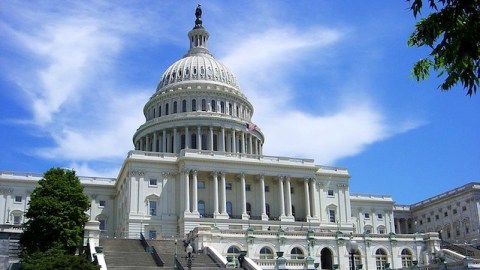The Least Popular Congress Ever

Congress is not very popular. With its reputation for petty partisan bickering, Congress rarely is particularly popular. But the current Congress’ popularity has reached incredible new lows.
According to a recent New York Times/CBS News poll, just 12% of Americans say they approve of the way Congress handles its job. That matches the previous record low since they started regularly asking the question, set in 2008 during the height of the financial crisis. Not surprisingly, in follow-up interviews respondents identified the parties’ inability to compromise as a reason for their disapproval. Neither the Democrats nor the Republicans in Congress poll well, although 28% approve of the job Democrats are doing compared to just 19% who approve of the job Republicans are doing. Even each party’s own voters disapprove of its congressional caucus: 43% of Democrats disapprove of the job Democrats in Congress are doing, and fully half of Republicans disapprove of the job Republicans in Congress are doing. Only 6% of registered voters say most members of Congress have earned reelection.
As Joshua Tucker at The Monkey Cage says, general disapproval of Congress won’t necessarily translate into incumbent members of Congress getting voted out of office. As political scientist Richard Fenno famously argued, people may disapprove of Congress as a whole, but still approve of their own representative. But that, as Tucker says, is what makes the latest data really remarkable. Only 33% of survey respondents say that even their own representative deserves to be reelected. That’s another record low, lower than the number of voters who said their own representative deserved to be reelected than before the wave elections of 1994 and 2006. And as Tucker says Gallup polling confirms that our dissatisfaction with our own members of Congress has rising to new highs over the past year.
That still doesn’t necessarily mean that incumbents are all going to voted out of office next year. The way the districts are drawn still gives incumbents of both parties an enormous advantage, and voters may not find they like their other choices any better. Nevertheless, we are in uncharted territory. Congress has become more steadily more polarized. More than ever, each party has a stake in seeing the other party fail. The use of the filibuster to block legislation in the Senate has skyrocketed. The recent debt ceiling fight shows that even previously routine votes like votes to authorize the government to pay debts it has already incurred have become high stakes fights. Republican strategists have to be worried about whether they can hold on to the House. It may be that their strategy of obstructing legislation to sabotage Obama’s presidency has begun to backfire. But it seems likely that both parties will find themselves in upheaval as the next election approaches. It looks like voters really want to throw the bums out this time.
Photo: Kevin McCoy





